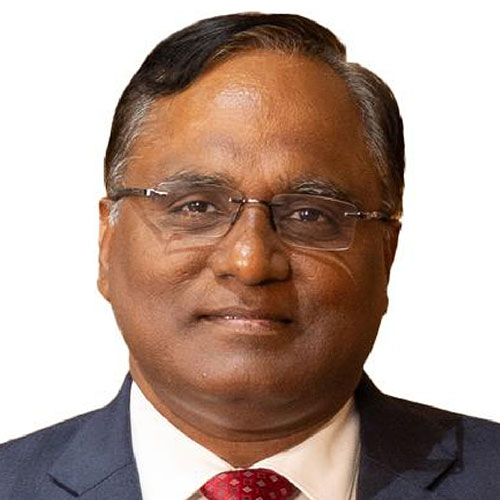Dr. Ranjit Rath is currently leading Oil India Limited (OIL), India’s oldest National E&P Company as the Chairman & Managing Director and Numaligarh Refinery Limited (NRL) as the Chairman. Under his leadership, OIL, a state-owned enterprise of the Government of India, with its origin dating back to the glorious year of oil discovery in India in 1889, has been accorded with the MAHARATNA status by the Govt. of India, the highest honour conferred to a Central Public Sector Enterprise (CPSE) in India. Dr. Rath is spearheading the next phase of transformative growth at OIL and its subsidiary NRL, with planned investments of around USD 10 Bn in upstream and USD 5 Bn in midstream & downstream hydrocarbon value chain in next five years. Under his leadership, OIL achieved landmark milestones including highest cumulative oil & gas production and highest gas production in FY2024-25 since inception, establishing presence of hydrocarbon and thus mapping new petroleum systems in North Bank of Assam Shelf and Andaman Shallow Water Basin, securing array of discoveries leading to monetisation through near field exploration campaigns, OGDC Membership and significant upgradation in ESG ratings. Dr. Rath is Spearheading NRL's growth with refining capacity enhancement from 3 MMT of crude oil annually to 9 MMT and a cross country ~1640 km crude oil pipeline with a capex of ~ USD 4 Bn and initiation of a Poly-propylene Plant (Pet-chem Project) with 360 KTPA capacity with capex of ~ USD 1 Bn. As Chairman, Spearheaded construction and commissioning of the 2G Bio Ethanol plant, first of its kind in the world at Numaligarh. A forward-thinking leader, Dr. Rath is steering OIL toward sustainable energy transition, aligning with global climate goals. With financial outlay of around USD 3 Bn, he has set an ambitious Net Zero Emission target by 2040 and unveiled "Vision 2040"—a strategic roadmap to transform OIL and NRL into an Integrated Energy Company. This vision covers a diversified portfolio, including Renewable Energy, Green Hydrogen, Biofuels, Geothermal Energy and Carbon Capture, Utilization and Sequestration (CCUS) initiatives, ensuring long-term sustainability while maintaining energy security. Dr. Rath, an alumnus of IIT Bombay & IIT Kharagpur, is a recipient of the prestigious National Geosciences Award from the Hon`ble President of India for 2016. Dr. Rath has also been bestowed the Distinguished Alumnus Award (DAA) of IIT Kharagpur for the year 2022. Dr. Rath, a Geoscientist with impeccable experience and expertise of more than 25 years has a rich portfolio of diverse roles spanning from upstream asset management, strategy formulation and business development to application of geosciences & exploration geology in several important projects including creation of Strategic Petroleum Reserves, a first of its kind initiative of Govt. of India entailing underground rock caverns for strategic storage of crude oil - An intervention towards Energy Security.
















